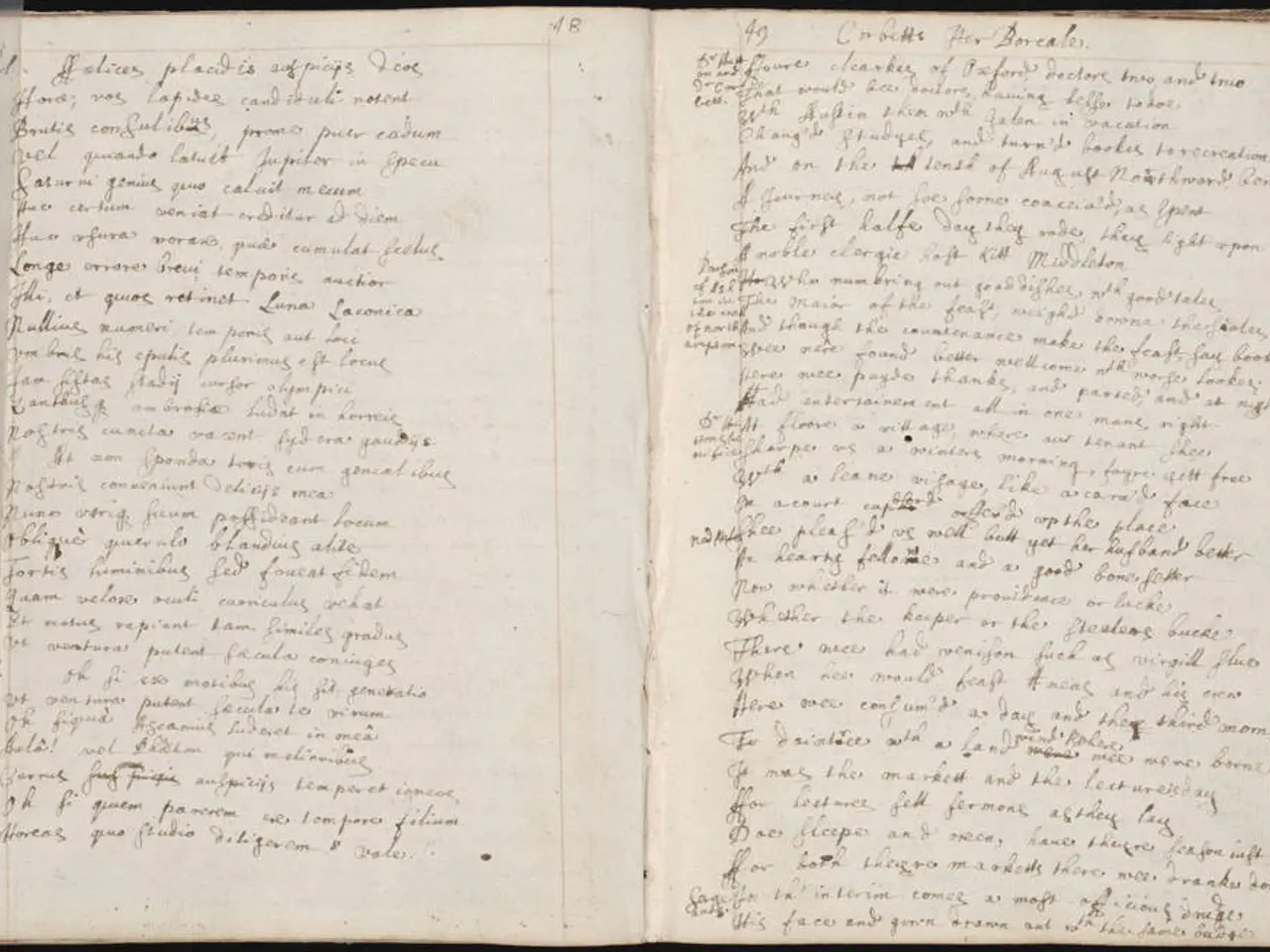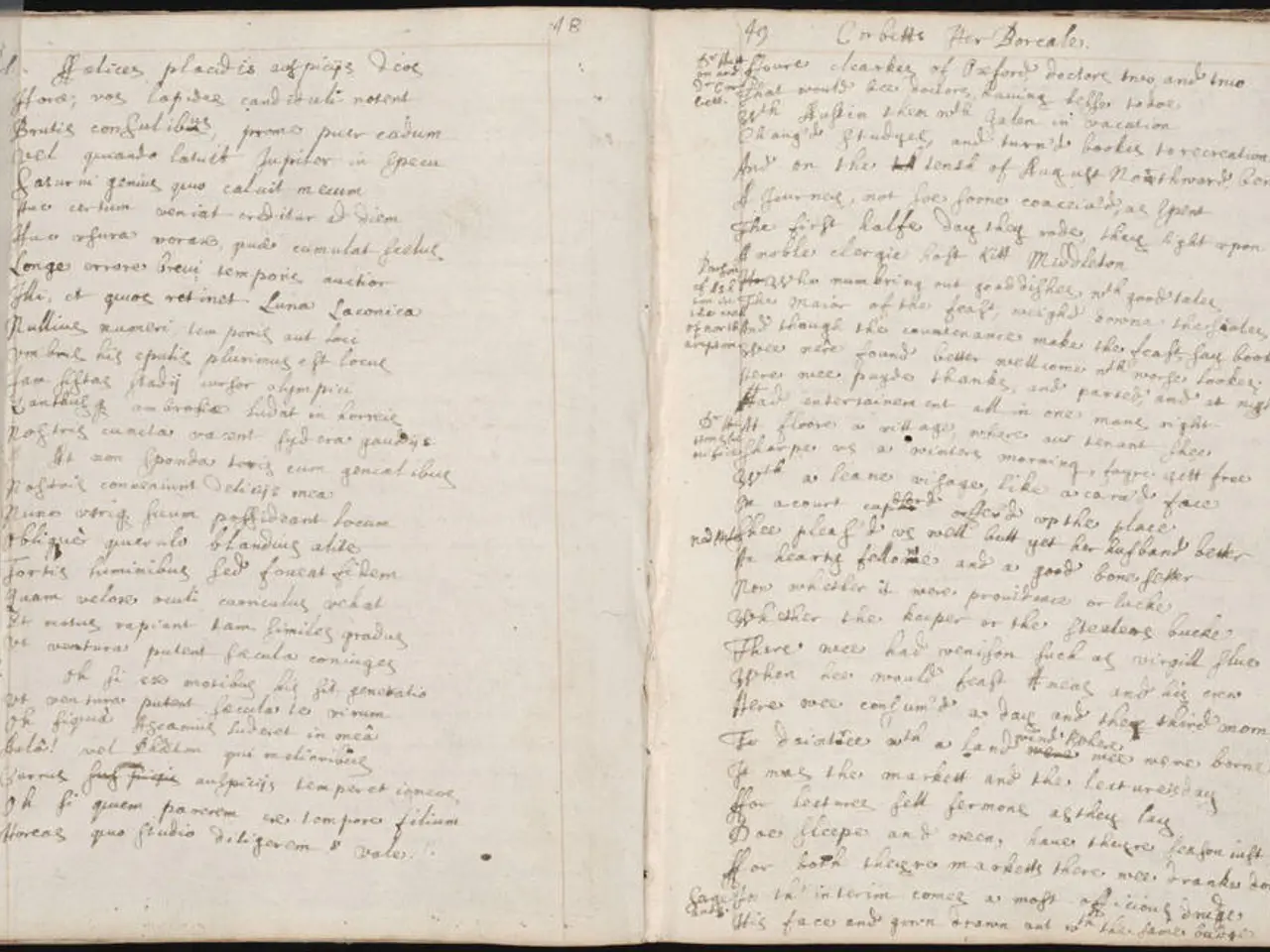A Detailed Walkthrough for Crafting an English Literature Essay: A Sequential Approach
In the pursuit of crafting a compelling English literature essay, it's essential to meticulously manage each stage of the writing process. Here, we provide a step-by-step approach to help you create a focused, insightful, and well-structured analysis of your chosen literary work.
**1. Prewriting and Planning**
Start by immersing yourself in the text, delving deep into its themes, characters, symbols, and literary devices. Take detailed notes and understand the context and author's purpose to uncover meaningful insights [1][2]. Choose a specific focus or thesis statement that reflects your main argument or interpretation. Avoid broad topics; instead, select a clear angle or question about the text [1]. Create an outline to organize your ideas logically, ensuring a coherent argument [1][3].
**2. Writing the Introduction**
Provide essential background information about the literary work and its author to set the context. Craft a precise thesis statement that clearly states your argument and what aspects of the text you will analyze [1][5]. Consider briefly outlining the main points you will develop to guide the reader.
**3. Developing Body Paragraphs**
Each paragraph should focus on one main point that supports your thesis, such as a theme, character trait, or literary technique [1][2]. Start paragraphs with clear topic sentences that indicate the paragraph’s focus. Use evidence from the text—quotations, summaries, or paraphrases—to substantiate your point. Follow evidence with analysis explaining its significance and linking it back to your thesis. Avoid simply summarizing the plot [1][2]. Use transitions to ensure smooth flow between ideas and paragraphs [2].
**4. Writing the Conclusion**
Restate your thesis in a fresh way, reinforcing your argument. Summarize the main points you have made. Offer a broader reflection on the significance of your analysis—why the theme or interpretation matters beyond the text itself [1].
**5. Revising and Proofreading**
Review your essay’s structure and clarity. Each paragraph should clearly support your thesis and contribute to a coherent argument [3][4]. Check for grammar, spelling, and punctuation errors, ensuring consistency in formatting and citation if required [3][4]. Refine your thesis and argument if needed for stronger focus or clarity.
---
**Summary of Key Strategies Per Stage**
| Stage | Strategies | |-------------------|------------------------------------------------------------------------------------------------| | Prewriting | Deep reading, focus selection, outlining | | Introduction | Provide background, state precise thesis | | Body Paragraphs | Topic sentence, text evidence, detailed analysis, clear link to thesis, smooth transitions | | Conclusion | Restate thesis, summarize points, offer broader insight | | Revision | Structural review, language polishing, error correction |
This systematic approach ensures your English literature essay is focused, compelling, and well-structured, delivering a clear and insightful analysis of the literary work. Remember, your essay should primarily focus on your analysis of the primary text, using secondary sources to support your points. A strong thesis should be specific, arguable, and focused, making a claim that is not immediately obvious and invites discussion. Secondary sources can strengthen your argument by providing different perspectives on the text.
[1] Source: "Writing an English Literature Essay: A Step-by-Step Guide" by the University of York, UK. [2] Source: "How to Write an English Literature Essay: A Comprehensive Guide" by the University of Cambridge, UK.
- In the realm of English literature education and self-development, practicing critical thinking through essay writing is crucial. Shakespeare's plays, for instance, offer rich themes, characters, and analysis for exploring essential literary elements.
- While crafting an essay, it is essential to immerse oneself in the text, taking notes on the various themes, characters, and literary devices used by the author. This immersion aids in uncovering deep insights that can contribute to a focused and insightful analysis.
- Upon developing a clear angle or question about the text, the next step is to write critical essays that analyze the chosen literary work. Each essay should have a well-structured body, comprising paragraphs that focus on a specific theme, character trait, or literary technique—which should be substantiated with evidence from the text.
- To grow as a student and develop strong skills in critical thinking and English literature analysis, it is imperative to revise and proofread essays thoroughly. This process ensures that the final work is coherently structured, clearly supports the thesis, and is free of grammar, spelling, and punctuation errors.




